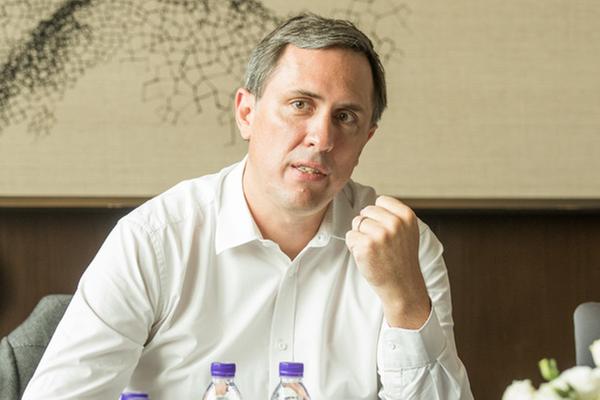Future Mobility's first model aims to add spark to new energy market
By Li Fusheng | China Daily | Updated: 2017-08-21 09:32
 |
| Daniel Kirchert, co-founder and president of Future Mobility Corp. [Photo provided to China Daily] |
Future Mobility Corp, so far a low-profile electric car startup, is now poised to power up, as it has finished its A-round financing and is putting the final touches on its first model.
Daniel Kirchert, co-founder and president of the carmaker headquartered in Nanjing, Jiangsu province, said the company has received $200 million in investment from three local investors, including home appliance retailing giant Suning and a State-owned company whose name he did not disclose.
"It was a landmark moment for us. We can tell from our communication with investors that they are quite appreciative of our development and product plans," said Kirchert, a car industry veteran who has previously worked at BMW and Nissan's premium arm Infiniti.
Established in 2016, FMC has raised $300 million so far. Kirchert said it will launch its B-round financing later this year and C-round in 2018, both similar in size to the first round.
FMC is planning to spend the newly raised money on product development and production. Its plant in Nanjing has been under construction for some time. When completed, it will have an annual production capacity of 300,000 vehicles.
Kirchert said FMC will also start branding soon, as the car platform and the first model are almost completed, mainly as a result of FMC's design teams in Munich, Germany. With a range of 500 kilometers on one charge, this near-production, drivable SUV will premiere at the Consumer Electronics Show in Las Vegas in January.
FMC's team in Silicon Valley is putting the final touches on the car, and a production version is expected to hit the market in late 2019.
Positioned as a premium product, it will compete in the segment currently populated by the Audi Q5, BMW X3 and Mercedes-Benz GLC, said Kirchert.
Besides the SUV, a sedan and a seven-seat MPV is in the pipeline, although FMC did not outline a detailed schedule.
Besides just top-notch quality parts, Kirchert said the appeal of FMC cars will be a pleasant in-car experience, achieved by developing brand new user interfaces and other software significantly different to that offered in traditional cars.
"Our core philosophy is that our car has to be wonderful and meanwhile be a real smart device on wheels," said Kirchert.
"Traditional carmakers are planning to transform themselves, but they are burdened with previous heavy investment, so their shift is gradual and cannot be that quick. And therein lies our opportunity."
He said electric cars now available on the market are based on traditional platforms and they cannot fully represent the advantage of electric cars.
"For example, our sedan will have a size between a long-wheelbase BMW 3 series and a long-wheelbase BMW 5 series, but because it is based on an electric platform, it will be much more spacious than the latter."
Kirchert said FMC is open to cooperation with other electric startups to promote the sector's development. "We do not have a specific plan, but it is good for us to do something together. They are not our rivals, and the collapse of any of them is no good news to us."
























